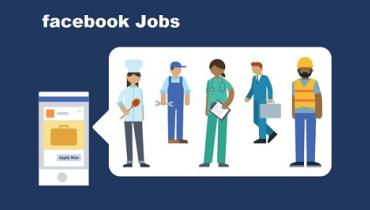8 Tips to Manage Your Money Better and Eliminate Credit Card Debt

How you manage your money is a key predictor of whether you will succeed, including as an entrepreneur, business owner, or creative. You need to manage your money well to succeed in your personal and professional life, and that includes eliminating any credit card debt you may have.
Huge credit card debt can feel like a crushing, impossible burden that will have to be carried for months, years, or even a lifetime. But it doesn’t have to be that way for you.
With a few deliberate steps and a great deal of discipline, credit card debt can be whittled down, paid off, and eventually eliminated for good.
Just imagine how good it’ll feel to not owe your hard-earned money to any credit card company?
Simple Steps to Eliminate Credit Card Debt for Good
Here are top tips to eliminate credit card debt and be free to save and spend your money better.
1. Cut up or cancel the cards
The absolute first step to eliminating debt is to avoid accruing more debt. For those who have fallen into excessive spending habits in the past, an absolute spending freeze on credit cards is generally the best remedy. Rather than just telling yourself not to spend, go further – eliminate the ability to use credit cards by rendering them useless.
While calling your provider and cancelling the card can work, many providers will offer extra rewards to entice cancelling customers to keep the card. To avoid this, a great option is to simply cut up the card and throw it in the trash. Just be sure that it is also removed as a payment option from any online stores and recurring subscriptions.
2. Negotiate with providers
While the word “negotiate” makes most people automatically cringe, this vital skill can save those in extreme credit card debt from extra months, or even years, of making payments.
When a credit customer has high outstanding debt and hasn’t been making payments, the credit card company may start to assume that they will never get their money back. Your angle for negotiation is promising that they can at least get some of the money back if they are willing to offer you more favorable terms or a balance reduction.
If your card has an extremely high interest rate, start with negotiating that down, as this can often prevent the need for a balance transfer. Negotiate with the company’s representatives over the phone, and try multiple calls if needed. Just be sure to get any agreement in writing, or many companies will claim they have no record of the deal you worked hard to make.
Note: There are debt reduction companies that will offer to negotiate for you, but beware of scams and hidden fees if you pursue that option.
3. Consider a balance transfer
For customers with very high credit card balances, a balance transfer to another card may do the trick if the original card’s terms aren’t favorable. This method involves finding a new credit card with a lower interest rate, and paying off your existing balance with the new card. Those who signed up for their original cards due to a reward offer are often in a great place for a balance transfer, because high-reward cards often also have high interest rates and high annual fees.
One important thing to note is that most cards have separate terms and conditions for balance transfers, so be sure to read the fine print before making this move!
4. Pay off the highest interest first
Now that you know the exact balance and terms you will need to pay off, it’s time to make a plan. If there are multiple cards making up your debt, plan to pay off the highest interest rate first, then keep moving to the next-highest until all the debt has disappeared. This will decrease the total amount you have to pay over the lifetime of the debt.
However, to save your credit score from additional negative remarks, be sure to pay the minimum payments on all your cards while focusing any extra payments at the card with the highest interest rate.
5. Get on a budget
If your household or business is not currently on a budget, this is the most important step on this entire list. List all your income and all expenses, and see what’s left over at the end of the month. Be sure to fill in honest estimates for necessities like groceries, and leave a little spending money to avoid blowing the rest of the budget on small luxuries.
Additionally, make sure to include budget lines for infrequent but expected expenses – like yearly insurance fees, back to school expenses, and Christmas gifts. There is an incredible variety of budgeting advice available online, as well as apps like Mint or Every Dollar to automate the process. Of course, your budget needs a category for credit card payments!
6. Look critically at “Necessities”
This step is essentially Budget 2.0. Once you’ve worked with a budget for two or three months, it’s time to take a closer look at the extra categories you budgeted for, and see what money can be moved to paying off credit card debt.
As you look critically, consider whether you would rather have each “necessity”, or you would rather be free from debt. Perhaps your weekly yoga class can switch to an at-home practice until you’re debt free, or you can sacrifice Saturday night restaurant dinners to try a new recipe at home.
One extra tip for this step is to pick a target monthly payment on your credit cards and challenge yourself to reduce other categories to meet the goal – instead of starting with other expenses and putting whatever’s left over into your card category.
7. Pick up extra work to increase income
A budget has two sides – income and expenses. While you’ve hopefully decreased your expenses already, you can also increase your income and put the increase towards paying off credit card debt.
Extra work doesn’t just have to be bagging groceries or delivering pizzas, either. Overtime at a full-time job, if available, is generally the best option. Outside of overtime, consider your skills and get a side gig. Someone with a truck can make money helping people move; someone with a college degree could tutor students in their field; and, a stay-at-home mom could volunteer to babysit while she watches her own kids.
Choose extra work according to your personal qualifications. It can generally earn a much higher hourly rate than going for the first “now hiring” sign you see.
8. Sell your junk
This final step is pretty simple – sell anything extra at a yard sale, on the curb, or online. Some things that sell might even be things that were purchased with credit cards in the first place!
While selling extra possessions certainly won’t eliminate your debt alone, it can be extremely helpful as a boost when you’re close to the finish line, or as a kickstart when you first commit to paying off debt.
As a side bonus, you’re decluttering your home at the same time.




















